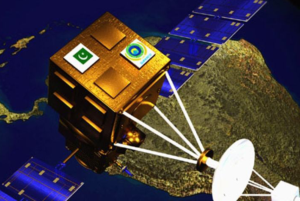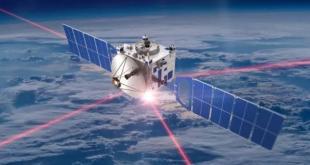
Pakistan has taken over control of its Pakistan Remote Sensing Satellite (PRSS)-1 and the PakTES-1A experimental satellite from Chinese operators just over a month after the two satellites were launched from the Jiuquan Satellite Launch Centre in China.
The handover was announced on 14 August 2018 by a spokesperson for the Pakistani Ministry of Planning, Development, and Reform, who said that the two satellites are now under the control of engineers and technicians of Pakistan’s de facto space agency, the Space and Upper Atmosphere Research Commission (SUPARCO). The handover of control took place after Chinese engineers successfully carried out on-orbit tests of PRSS-1 and PakTES-1A for several weeks following their launch from China on 9 July 2018.
The date of the satellite handover to SUPARCO coincided with Pakistan’s 71st Independence Day, and both the President of Pakistan, Mamnoon Hussain, and Prime Minister, Imran Khan, delivered messages of congratulations and appreciation to SUPARCO officials and engineers.
PRSS-1 was built for Pakistan by the China Academy of Space Technology (CAST) and is the 17th such satellite developed by the organisation for a foreign country. PRSS-1 will be used for land and resource management, urban development, environmental monitoring, and Pakistani national security purposes, as well as used in support of the construction and operation of the China-Pakistan Economic Corridor (CPEC), part of China’s ambitious Belt and Road Initiative (BRI).
PakTES-1A is an experimental test satellite developed indigenously by scientists and engineers at the Pakistani space agency, SUPARCO. The purpose of the PakTES-1A satellite is to indigenously develop the technical capacities, methods, processes, and technologies required for Pakistan to indigenously build its own high-capability satellites in the future.
A number of analysts in Pakistan have expressed fears that the South Asian country has become too dependent upon China for its strategic technology, economic, and infrastructural needs. On the other hand, analysts also fear that Pakistan is woefully behind in its development of satellite technology when compared to its biggest strategic rival India.





